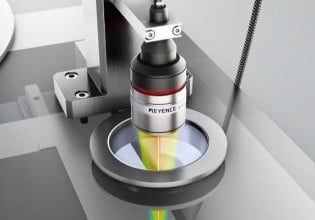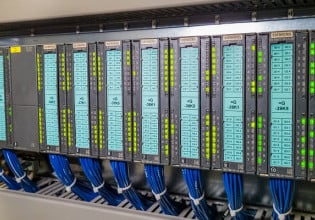Industrial Partnership Spearheads Development Of Biodegradable Hydraulic Fluid
In a step toward ecological resilience, Bosch Rexroth has announced a partnership with TotalEnergies to develop a water-based, biodegradable hydraulic fluid with similar properties to traditional oil.
Virtually all hydraulic systems contain some configuration of only a few parts: a pump, directional control valve(s), and some kind of output device, usually an actuator, or motor. These systems use mineral oil, which is a petroleum-based product produced by distilling crude petroleum oil, a process and product that are both known to be harmful to the environment, yet hydraulic systems are absolutely necessary to keep our world running.
How Do Hydraulic Systems Work?
The oil is pressurized by a pump driven by a motor or generator. When a control valve is spooled to a certain position, the fluid can push the actuator or rotate the motor. Once the fluid has performed its duty, it is returned to the pump reservoir tank waiting to be pressurized again.
Mineral oil has long been the medium of choice for hydraulic systems, primarily for its lubrication properties and relatively low cost. Recently, TotalEnergies, a manufacturer of biofuels, natural gas, and green gases, has partnered with one of the largest suppliers of hydraulic systems, Bosch Rexroth, to develop a hydraulic medium that isn’t based on traditional oil products.

Bosch Rexroth and TotalEnergies predict a future where hydraulic motion is accomplished with more effective fluid chemistry.
Collaboration for Effective Hydraulic Fluids
Bosch and TotalEnergies have set out to develop a more sustainable, water-containing, biodegradable hydraulic medium. TotalEnergies will provide the fluid and Bosch will provide the requirements and testing of the fluid. This new medium will need to perform at the same level, if not better, than standard mineral oil. Once the fluid has been developed and tested, Bosch and TotalEnergies will also develop a standardization protocol so that other manufacturers will be able to attain the same set of guidelines when making different versions of the biodegradable fluid.
Why Not Just Use Water?
Water might seem to be a good alternative; it has a low compressibility and is certainly plentiful enough to be low-cost. It is also environmentally friendly, however, the reality is that water is absolutely not a good hydraulic solution.
Water doesn’t have good lubrication properties for metal components and can cause components to corrode (rust). The working fluid will need to have similar lubrication properties as hydraulic fluid, will not break down in a short time, and will not damage existing components. The medium must be compatible with the devices that are already in place, since the industry will not want to replace thousands of components just to facilitate a biodegradable solution.
Temperature plays a major role in the final product chemistry, as both extremely high and low temperatures are quite common in hydraulic system environments. The fluid should not boil at high temperatures, and low working temperatures should not create solids (ice). Either situation spells certain doom for hydraulic components.

Many equipment and industrial applications use hydraulics for motion control of heavy loads. Image used courtesy of Adobe Stock
The Complex Science of Hydraulic Fluid
Standard hydraulic fluid has been used for many years in the construction industry and automotive industries. There are many safety and environmental issues with hydraulic oil, which are some of the reasons that Bosch and TotalEnergies are collaborating.
Not only is the production of hydraulic oil harmful to the environment, so are hydraulic leaks. When replacing and repairing components or when hoses are damaged, fluid spills end up being quite common. For agriculture, construction, and seafaring equipment, these leaks often occur in the field and are difficult to clean up.
If a biodegradable fluid is used, leaks are of less concern to the environment. Hydraulic oil, being a petroleum-based product, has a flash point of above 300 °F and will start to break down at 140 °F. Even with these relativity high temperatures, hydraulic oil has been the culprit of numerous industrial fires resulting in damage to buildings and equipment.
Designing a biodegradable hydraulic oil solution that is also flame retardant could be the first step in saving lives and lowering property damage while creating an eco-conscious product that provides a more cost-effective solution for large-scale motion systems.






